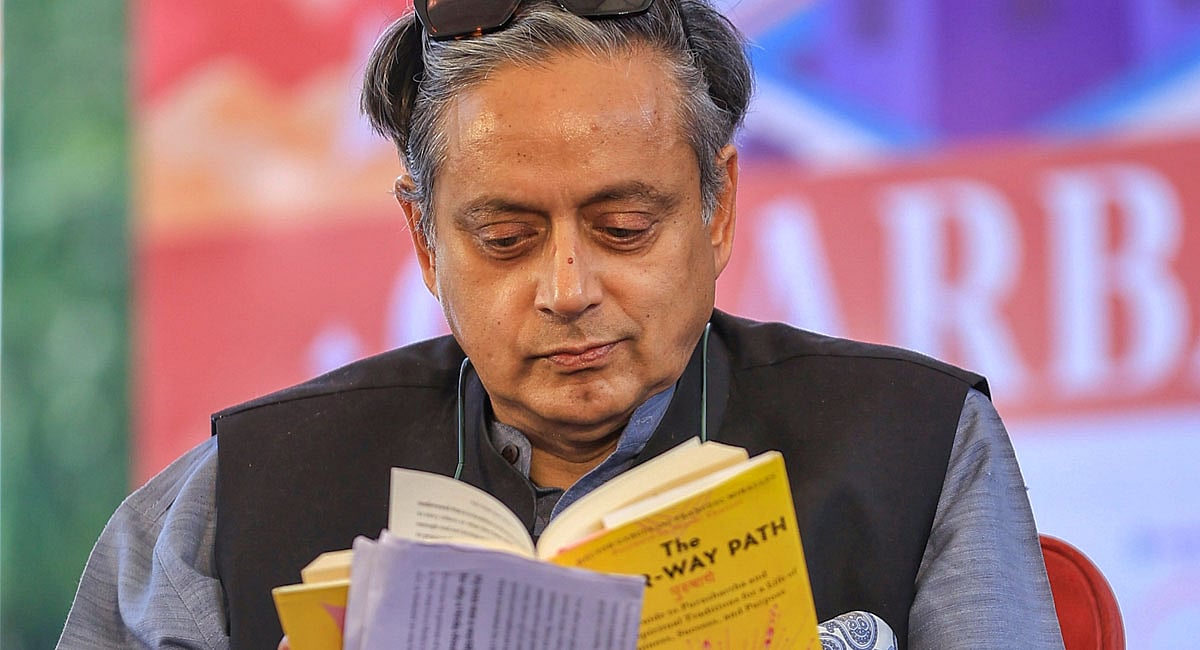 |
|
The recent statements by Shashi Tharoor, a prominent Indian MP, and Amol Palekar, a respected Bollywood actor and director, highlight a growing concern within India regarding the direction of its political discourse and the potential erosion of democratic values. Tharoor's invocation of Swami Vivekananda's teachings serves as a powerful counterpoint to the increasingly exclusionary interpretations of Hinduism that are being propagated by certain political factions. By emphasizing the multifaceted nature of Hindu philosophy and practice, Tharoor implicitly critiques the attempts to reduce Hinduism to a monolithic, and often intolerant, ideology. His assertion that 'there is no place for saying, mine is the only way in Hinduism' directly challenges the narrative promoted by certain right-wing groups who present their particular brand of Hinduism as the sole legitimate expression of the faith. This strategic use of Vivekananda's inclusive vision serves to underscore the hypocrisy of those who claim to speak for all Hindus while simultaneously marginalizing diverse perspectives and practices.
The comparison to the 'team identity of the British football hooligan' is a particularly striking rhetorical device. It effectively illustrates the dangers of reducing complex religious and cultural identities to simplistic tribal affiliations. This simplification facilitates the creation of an 'us vs. them' mentality that is readily exploited by those seeking to consolidate power through divisive tactics. Tharoor's statement is not merely a theological argument; it is a political intervention aimed at combating the insidious rise of religious intolerance and the erosion of democratic debate within India's public sphere. The subtle yet potent critique of the BJP and RSS is clear, highlighting the increasingly concerning trend of using religious identity to justify political agendas and suppress dissenting voices.
Palekar's concerns regarding the growing trend of mobocracy in India further underscores the severity of the situation. His observation that criticism of political leaders and the government is increasingly being labeled as anti-national reflects a dangerous pattern of silencing dissent and undermining critical discourse. This tendency to suppress dissenting opinions through accusations of disloyalty is a hallmark of authoritarian regimes and poses a grave threat to India's democratic institutions. The fact that such a prominent figure in Indian cinema is expressing these concerns reinforces the widespread anxiety felt by many Indians about the state of their democracy.
The confluence of Tharoor and Palekar's statements reveals a deeper societal concern about the future of India. The erosion of tolerance, the suppression of dissent, and the rise of mobocracy are interconnected threats that undermine the very fabric of a healthy and vibrant democracy. Their comments serve as a clarion call for a more inclusive, tolerant, and pluralistic India, one where diverse voices are heard, dissenting opinions are respected, and the principles of democratic discourse are upheld. The challenge now lies in effectively combating the divisive forces that are threatening to unravel the foundations of Indian democracy and fostering a climate of open dialogue and mutual respect.
The use of Swami Vivekananda’s legacy as a tool for promoting religious tolerance is a particularly insightful strategy. Vivekananda, a figure revered across the Hindu spectrum, represents a more inclusive and tolerant approach to Hinduism. By invoking his teachings, Tharoor appeals to a broad audience and subtly challenges those who use a narrow, exclusionary interpretation of Hinduism to justify their political agendas. This strategic use of historical figures and religious texts highlights the importance of engaging with India's diverse religious and cultural heritage in a way that promotes understanding and tolerance, rather than division and conflict.
Ultimately, the statements by both Tharoor and Palekar represent a significant moment in India's ongoing political and social debate. Their concerns reflect the anxieties of many Indians who are witnessing the erosion of democratic norms and the increasing polarization of society. The challenge now lies in transforming these concerns into a sustained movement for change, one that prioritizes tolerance, inclusivity, and the preservation of democratic values in the face of rising authoritarian tendencies. The future of Indian democracy may depend on the success of this crucial struggle.
Source: Citing Vivekananda, Tharoor says mine is not only way of Hinduism
